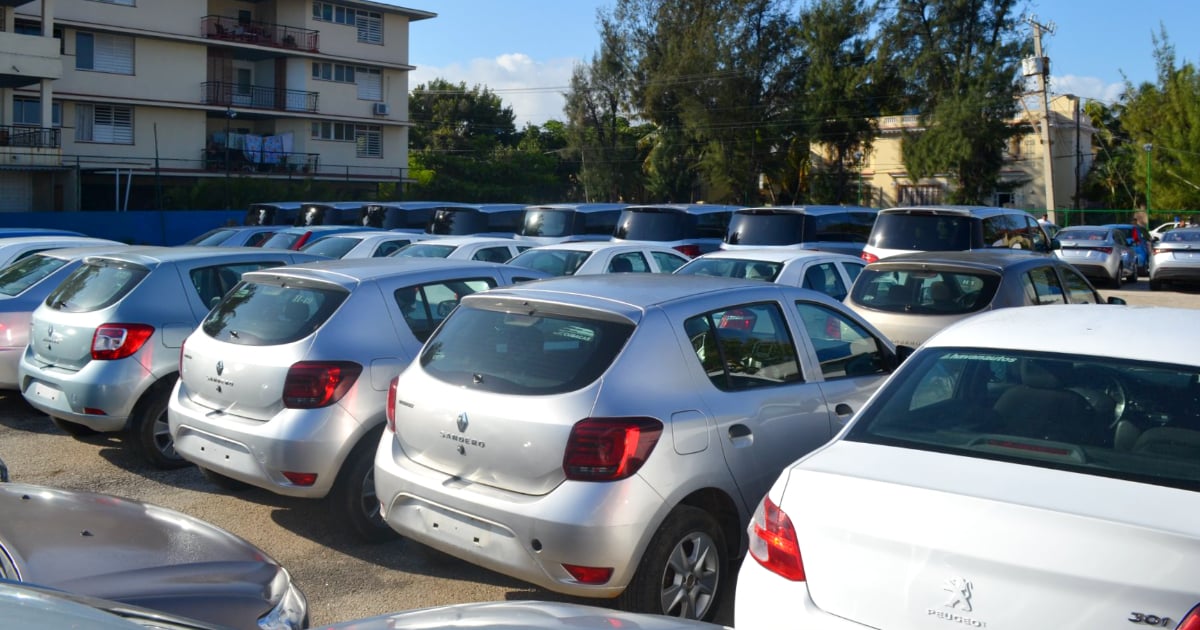The Cuban government announced new measures this Monday regarding vehicle sales in the country, including a reduction in prices for automobiles sold to private individuals. The announcement was made by Cuba's Minister of Transport, Eduardo Rodríguez Dávila, on his social media accounts, stating that the goal of these measures is to "facilitate greater access to new means of transport for society as a whole, and to raise funds aimed at sustaining and developing public passenger transport and transport infrastructure."
Following the approval of Decree 83/2023 in February 2023, "On the transfer of ownership of motor vehicles, trailers, and semi-trailers, their commercialization, and importation," the government of Miguel Díaz-Canel is updating its vehicle commercialization policy in Cuba. This issue had remained tightly controlled during the decades-long rule of Fidel Castro, whose policies are continued by the current leader appointed by his brother, Raúl Castro.
While Decree 83/2023 authorized the wholesale sale in freely convertible currency (MLC) of both new and used motor vehicles to all Cuban and foreign legal entities, the new measures introduce several updates. According to Rodríguez Dávila, "the importation and commercialization of vehicles in convertible currencies [approved by the ousted Minister of Planning and Economy, Alejandro Gil Fernández] will continue, adjusting the sales prices so that they do not vary whether the buyer is a legal entity or a private individual."
Previously, private individuals paid higher prices for vehicles compared to legal entities such as SMEs, cooperatives, foreign firms, and state companies. The new measures will lower these prices for private buyers. Customs fees, services, and taxes will be paid in convertible currencies, as previously established. These fees allow the General Customs of the Republic of Cuba to collect between $20,000 and $56,000 per imported vehicle from the United States, according to the independent media outlet Diario de Cuba.
"The revenue from taxes and tariffs collected as a result of this policy will form part of a fund managed by the Ministry of Transport, aimed at the recovery and development of public transport and its infrastructure," the minister stated.
Additional Policy Updates
Other updates to the policy include:
- Authorization for the transfer of vehicle ownership between private individuals and legal entities, excluding foreign diplomats who have a special regime. State legal entities require Council of Ministers authorization to transfer ownership to non-state entities.
- Vehicles in good technical condition available in the Cuban market, including those that have finished their use in tourism, will be sold in national currency following economic plan priorities. Previously, this stock was sold in dollars and included defective vehicles.
- Adjustment and generalization of the special sales tax for vehicles, ranging from 35% of the total sales value in convertible currencies for high-end vehicles to no tax for Cuban-assembled electric vehicles.
- Progressive tax in convertible currencies for the number of vehicles a private individual or legal entity can acquire, starting from the third vehicle (motorcycle, car, or rural car). This allows up to 6 vehicles to be acquired in five years.
- One-time vehicle importation authorization for individuals on official missions abroad, under conditions established by their respective organizations.
- Continuation of direct importation by private individuals of mopeds and electric motorcycles under current conditions.
- Authorization for the direct importation of low-displacement internal combustion or hybrid engine motorcycles, with or without sidecars, either through passenger or shipping routes.
- Permission for the direct importation of electric tricycles with capacity for more than two passengers or with a cargo capacity.
- Authorization for the sale in CUP of whole vehicles that are technically decommissioned from tourism rentals and can be recovered by interested buyers.
According to the Cuban government, "the update of this policy will facilitate access for individuals capable of doing so to various alternatives to meet their mobility needs using their own resources."
"This update addresses requests made by many people in recent years and will contribute to modernizing the country's vehicle fleet, improving road safety, stimulating national production/assembly, and increasing the use of clean energy vehicles," Rodríguez Dávila added.
Finally, the minister mentioned that the vehicle commercialization policy contains more details, promising "future publications that will provide more in-depth information on each aspect."
Key Questions About Cuba's New Vehicle Commercialization Policies
Here are some frequently asked questions regarding the new measures announced by the Cuban government to adjust vehicle prices and related policies.
What is the goal of the new vehicle pricing measures?
The goal is to provide greater access to new means of transport for society as a whole and to raise funds to sustain and develop public transport and infrastructure.
Who will benefit from the reduced vehicle prices?
Private individuals who previously paid higher prices compared to legal entities such as SMEs, cooperatives, foreign firms, and state companies.
Will the new measures affect the importation fees and taxes?
No, customs fees, services, and taxes will continue to be paid in convertible currencies, as previously established.
